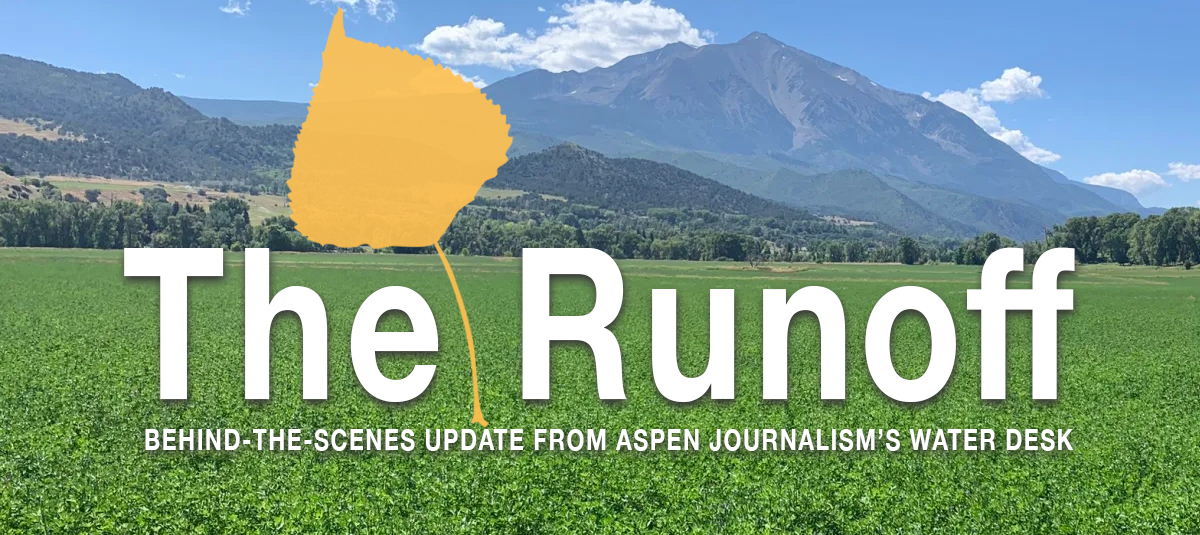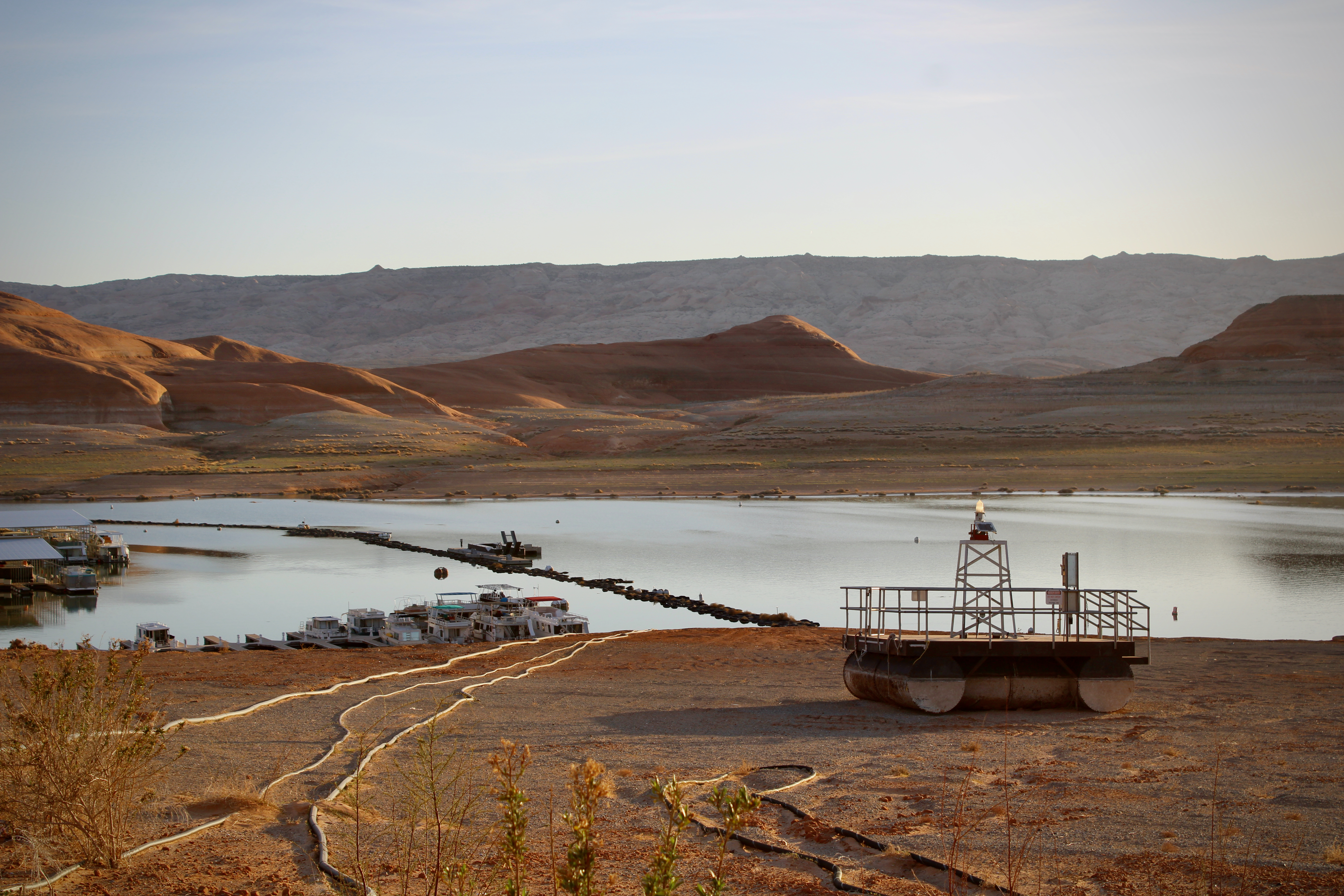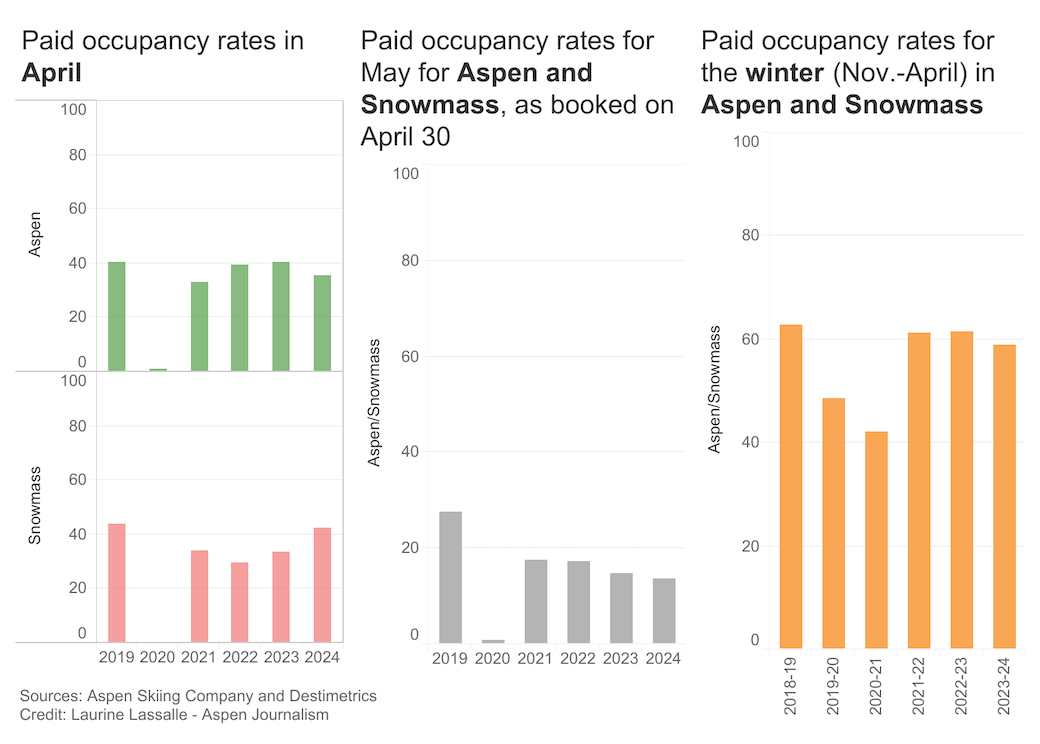


Heather Sackett here with a special edition of The Runoff, the Aspen Journalism Water Desk newsletter, to give you a heads up that today we published a collaboration with KUNC’s Colorado River reporter Alex Hager about a controversial water conservation program in the Upper Basin.
This story started out as a conversation Alex and I had at the Colorado River Water Users Association conference in Las Vegas back in December. We had both been hearing from water managers and sources on the beat that there was a lot of skepticism around the System Conservation Pilot Program, which pays water users (mostly farmers and ranchers) in Colorado, New Mexico, Utah and Wyoming, to cut back. The program is a big expense to taxpayers, doesn’t save that much water and raises concerns about impacts to rural agricultural communities. Plus, if you believe the Upper Basin’s position that the crisis on the Colorado River is entirely the fault and responsibility of the Lower Basin, then the Upper Basin shouldn’t need to do a conservation program anyway.
The questions we set out to answer were: Given all these issues, why is the Upper Basin doing SCPP and is the program accomplishing what it set out to do?
These questions may seem simple, but the answers are complex and nuanced. In this collaboration, we present our findings after interviews with experts and combing through each of the 175 contracts that SCPP participants signed across the four states. We also traveled to Pinedale, Wyoming to meet with a rancher who has enrolled in SCPP in both 2023 and 2024 to get the perspective of an enthusiastic participant.
This multimedia story was a team effort with editing help from Luke Runyon at the University of Colorado’s Water Desk and features data visualization from Aspen Journalism Data Reporter Laurine Lassalle. Be sure to listen to the audio version of the story that is airing on regional public radio stations, click through the interactive chart of SCPP projects by state and year, and check out the breakdown of the types of water-saving projects.
Aspen Journalism’s tagline is “local, nonprofit, investigative.” Our fourth watchword is “collaborative.” We are proud to present the results of this collaboration and think it’s one of our best. Happy reading and listening.
As always, thanks for supporting Aspen Journalism’s nonprofit, in-depth, investigative reporting.
– Heather Sackett
Water Desk Editor and Reporter

Using less of the Colorado River takes a willing farmer and $45 million in federal funds
Upper Basin conservation program dogged with concerns over cost and efficacy
By Heather Sackett and Alex Hager/KUNC | May 30, 2024
Of all the challenges in setting up a program such as this — funding, pricing, calculating water saved, getting the word out — the biggest may be the attitudes of water users themselves, some of whom have a deep-seated mistrust of the federal government.

Data dashboard: Winter occupancy reaches 59% in Aspen and Snowmass
Lake Powell’s elevation has gained four feet of water since last week.
By Laurine Lassalle | May 29, 2024
• Winter occupancy in Aspen and Snowmass reached 59%, down from 61.6% last year but the number of room nights sold went up by 3.3%.
• The Fork ran at 49% of average at Stillwater and at 65% of average at Emma, on May 27.
• Snowpack at McClure Pass and North Lost Trail is gone.


